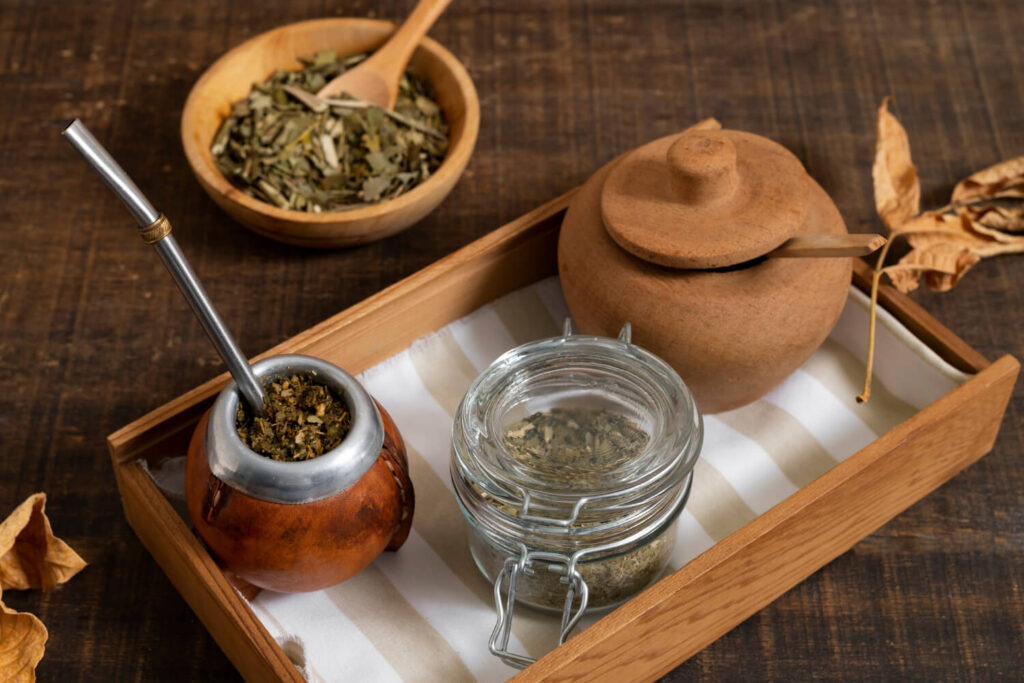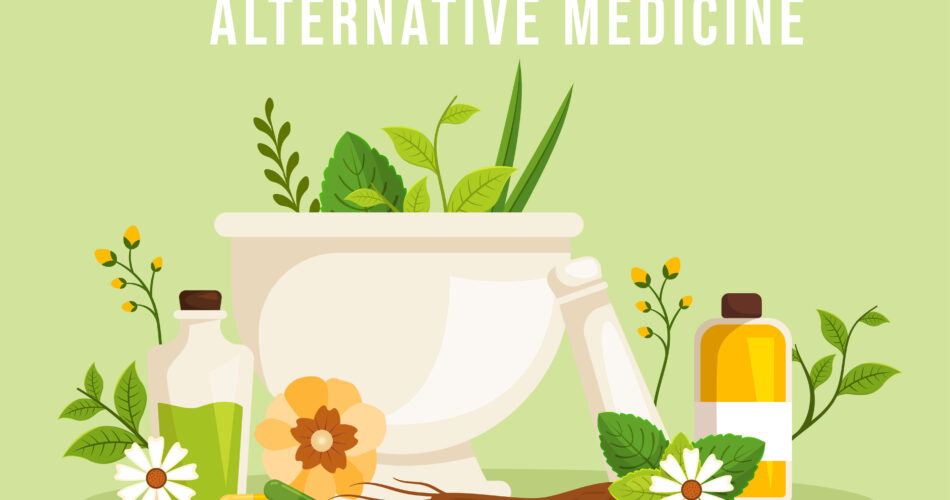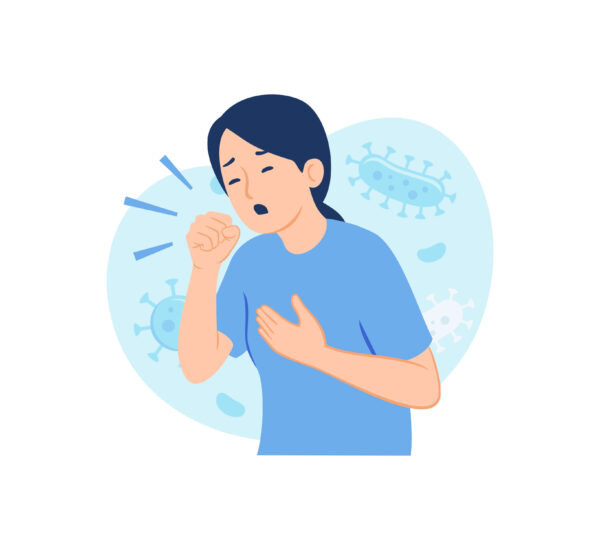Among the different treatment options for asthma, there’s another aspect the people try to utilize. It is the idea of using herbal treatment for asthma. This form of treatment has been a household remedy for parents to treat their children. However, wrong usage, especially the dosage of such herbs might cause some detrimental effects to patients. That’s why it is still important to have guidance from experts when dealing with asthma.
In this blog, we’ll uncover the effectiveness of these herbs and how it works when alleviating the asthma symptoms. At the same time, patients can discover whether or not these are potent remedies and how to properly use them. Let’s begin!
Understanding Asthma and Its Symptoms

Asthma is a chronic respiratory condition characterized by inflammation of the airways. It typically affects the airways, making it swell and inflamed due to the various triggers.
When an individual becomes exposed to those triggers, the patients can experience the following symptoms:
- wheezing
- coughing
- shortness of breath
- chest tightness
Understanding individual asthma symptoms is crucial for effective management and treatment. Some people might be choosing to seek help from a doctor, while some choose herbal treatment for asthma intervention. No matter which was chosen, it is still important for patients to properly manage their asthma to avoid its exacerbation in the long run.
Common Asthma Triggers and Responses

As mentioned, asthma triggers can affect the patient’s respiratory health as it contributes to the exacerbation of the condition. Aside from that, these triggers can be a factor for the progression of the condition into severe asthma. That’s why it is important to be aware of the possible triggers and avoid them as much as possible.
Here are some of the common asthma triggers:
- common allergens (pet dander, dust mites, pollens, etc.)
- cold weather
- respiratory infections
- strenuous exercises
- high stress levels
When exposed to these triggers, the airways of asthma patients can become inflamed. It can trigger asthma symptoms, resulting in lung inflammation. Of course, early intervention is a must to combat such a scenario. However, most patients tend to lean on home remedies more like finding an effective herbal treatment for asthma.
Potential Risks and Considerations
As mentioned, before utilizing the selections of herbal treatment for asthma, it is vital to always consult first with a health doctor. That’s because interactions between herbal treatments and conventional asthma medications need careful monitoring to avoid adverse effects.
While herbal treatments offer benefits, they are not a substitute for professional medical advice and diagnosis. It is essential to maintain regular asthma monitoring and follow an individualized treatment plan for optimal health outcomes.
Interactions Between Herbs and Conventional Asthma Medications
With the possible conflicting effects of both types of treatment, it is important to have proper guidance on how to utilize them correctly. That’s because some herbs might amplify or weaken the effects of prescription medications, impacting your overall treatment plan. So, it’s best to understand the potential interactions between herbal treatments and conventional asthma medications.
Consulting with a healthcare provider is the best step to understand proper usage of both types of treatment options. Take note that usage of herbal treatment for asthma is not wrong, but it is also important to acknowledge the possible side effects when used with a conventional medication.
Popular Herbal Treatment for Asthma

Herbal treatments for asthma have shown promise in reducing inflammation that results in asthma. In some cases, usage of herbs as remedies work effectively to alleviate symptoms and improve pulmonary function
Here are some effective options as herbal treatment for asthma:
Turmeric
A bright yellow spice that is a popular herb known for its anti-inflammatory properties. It contains curcumin, which may help reduce airway inflammation in asthma. Adding turmeric to your diet or using supplements could potentially support lung health and improve asthma symptoms.
Always consult with your healthcare provider before incorporating turmeric into your treatment plan to ensure it complements your asthma management effectively.
Garlic
Meanwhile, another herbal treatment for asthma is garlic. This potent herb offers numerous health benefits including its potential role in managing asthma symptoms. Its anti-inflammatory properties can help reduce airway inflammation, easing breathing difficulties. Incorporating garlic into your daily regimen can complement your asthma treatment plan.
However, always consult with your healthcare provider before starting any herbal treatment to ensure it aligns with your overall health management. When used cautiously and as part of a holistic approach, garlic may offer additional support in asthma symptom management.
Nigella Sativa or Black Seed
On the other hand, nigella sativa, also known as black seed, is another herbal treatment for asthma that can promise disease control and management. This herbal remedy is rich in thymoquinone, which exhibits anti-inflammatory properties that may help reduce airway inflammation and improve lung function. Furthermore, studies suggest that black seed may aid in relieving asthma symptoms such as chest tightness and airway constriction.
However, individuals should approach its use with caution and consult healthcare professionals before incorporating it into their treatment plan. Always prioritize safety and consult a healthcare provider before starting any herbal treatments.
Ginseng
Ginseng is a common herbal treatment for asthma. This traditional Chinese medicine is known for its anti-inflammatory properties. It may help reduce airway inflammation and improve lung function, offering potential relief for asthma symptoms. Incorporating ginseng into your treatment plan could complement conventional asthma medications.
Like the previous herbal treatments, it is important to use such herb with caution. Please consult your healthcare provider before integrating ginseng to ensure it aligns with your specific needs.
Herbal Teas for Daily Management
Lastly, patients with asthma can also rely on herbal teas for relief. Certain blends like ginger tea or green tea contain antioxidants that may help reduce inflammation in the airways. Meanwhile, peppermint tea is known for its relaxing properties, potentially aiding in easing respiratory discomfort.
Incorporating herbal teas into your day can provide a comforting ritual while potentially offering respiratory benefits. Remember, herbal teas are meant to complement your asthma treatment plan, not replace it. Always consult with your healthcare provider before making significant changes.
The Limitations of Herbal Treatment for Asthma

While herbal treatments offer benefits, they cannot replace conventional medical care for asthma. Herbal remedies lack standardized dosages and may interact with prescribed medications. Furthermore, it cannot address severe asthma symptoms effectively, necessitating the use of prescription medications.
Additionally, in terms of effectiveness, herbal treatment for asthma lacks the precision and potency of medically prescribed interventions. Asthma is a complex condition that requires professional diagnosis and management. Herbal remedies may alleviate symptoms, but they cannot address underlying causes or provide immediate relief during severe asthma attacks.
Take note, herbal treatments complement but do not substitute professional medical advice and treatments in managing asthma effectively. That’s why it is crucial to consult healthcare providers before integrating herbal treatments into an asthma management plan.
When to Visit A Pulmonology Doctor

It is important to visit a doctor during the first time occurrence of the symptoms of asthma. It is understandable that some may still choose to apply home remedies initially, but it can possibly worsen the situation. Some of the common signs that the condition is worsening through the color of the phlegm.
Excessive mucus production such as phlegm is a common occurring situation when a person has asthma. If the symptoms are not addressed immediately, it can lead to possible infection, which turns the phlegm to yellow. That’s an alarming health situation. Thus, it is best to seek help from a pulmonologist first to better manage asthma.
Frequently Asked Questions
Can herbal treatments effectively manage asthma symptoms?
Herbal treatment for asthma may provide symptom relief but is not as effective as prescribed medications in managing severe asthma symptoms or addressing underlying causes. Consult a healthcare provider before incorporating herbal remedies into your asthma management plan.
Are there any side effects associated with herbal remedies for asthma?
While herbal treatments are generally considered safe when used appropriately, they can still cause side effects or interact with other medications. It is essential to consult with a healthcare provider before starting any herbal treatment regimen to prevent potential complications and ensure safety.
How can I incorporate herbal treatments into my asthma management plan safely?
Before incorporating herbal treatments into your asthma management plan, it is crucial to consult with a healthcare provider. They can provide guidance on the safety, effectiveness, and potential interactions of herbal remedies with prescribed medications to ensure a comprehensive and safe treatment approach for asthma.
Conclusion
While herbal treatments for asthma offer potential benefits, they should not replace conventional medical care. It is crucial to consult healthcare professionals for a comprehensive treatment plan. By integrating herbal remedies with prescribed medications, individuals can optimize asthma management.
Remember, natural remedies can only provide temporary relief, and may still provide side effects. It’s best to still rely on the action plan that the pulmonology doctor will provide, than relying solely on herbal treatment for asthma.
Ensure your immune system is not compromised by booking an online consultation with a pulmonology doctor today!
Herbal Asthma Treatment Quiz
Test your knowledge about natural remedies for asthma
Need Expert Guidance?
Consult with a pulmonologist to discuss your asthma management and whether herbal remedies might complement your treatment plan.
Find a Pulmonologist


